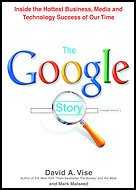Many Takedown Notices Invalid
report
Samuelson Clinic Non-Resident Fellow Co-Authors Report on Cease-and-Desist Letters Submitted to Chilling Effects
November 22, 2005 -- Samuelson Clinic Non-Resident Fellow Laura Quilter and Jennifer Urban, Director of the Intellectual Property Clinic at the University of Southern California, have released a summary report of findings from a study of takedown notices sent pursuant to Section 512 of the Digital Millennium Copyright Act, and submitted by the recipients to the Chilling Effects clearinghouse. The report, titled "Efficient Process or 'Chilling Effects'? Takedown Notices Under Section 512 of the Digital Millennium Copyright Act," traces the use of the Section 512 takedown process and considers how the usage patterns found are likely to affect expression or other activities on the Internet, especially in light of the fact that the authors observed a surprisingly high incidence of legally flawed takedowns.
Read the summary report (pdf)
Read the summary report (html)



